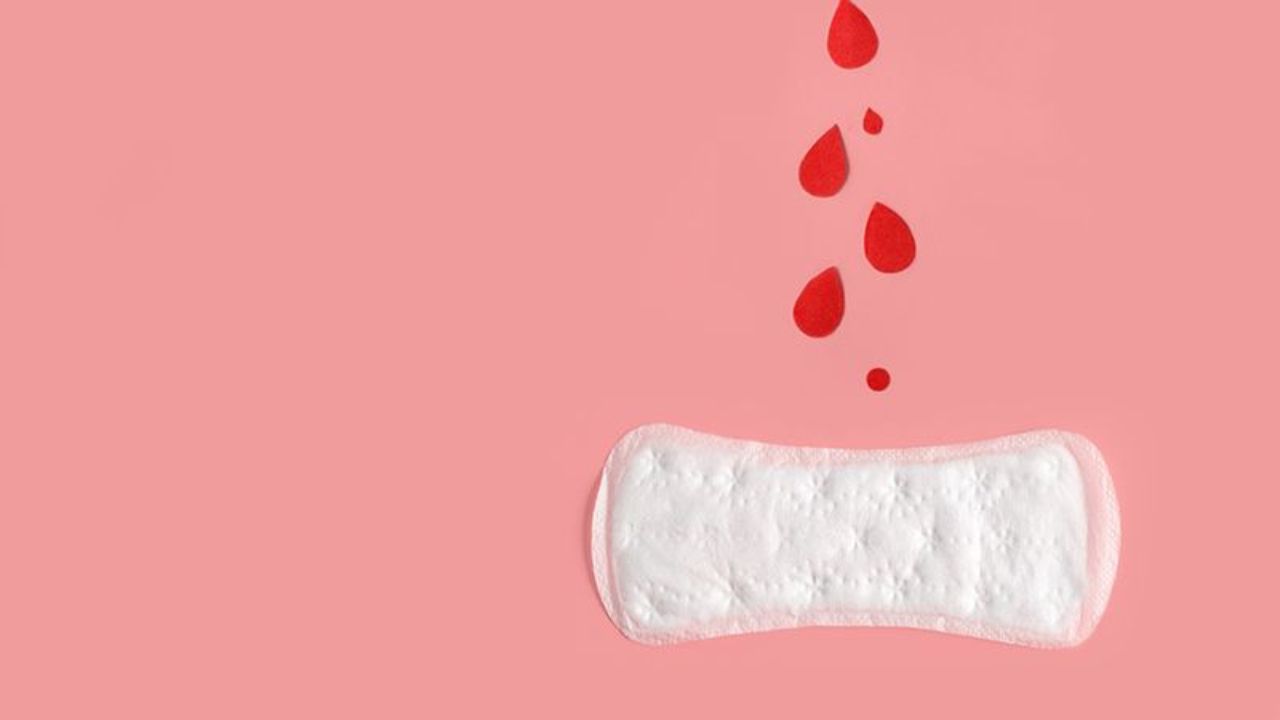Feeling a tad lethargic or perhaps your muscles aren’t as strong as they once were? Your testosterone levels might be having a little dip. But worry not, from delightful oysters to wholesome beans, there’s a platter of foods ready to give your testosterone a natural boost.
While predominantly recognised as the male hormone, testosterone isn’t exclusive to men. Women produce it too, albeit in smaller quantities. A shortage can lead to fatigue, moodiness, and a dip in sexual interest among other symptoms. If that’s sounding a touch too familiar, perhaps it’s time to revamp your diet.
Natural Testosterone Boosters: A Culinary Guide
For your convenience, we’re categorising these testosterone-boosting heroes based on dietary preferences – non-vegetarian delights and vegetarian/vegan wonders.
Foods for the Carnivore Connoisseur:
- Tuna & Wild Salmon
Why they’re good: Both are vitamin D champions, a vitamin closely linked with testosterone health.
Serving suggestion: A can of tuna or wild salmon seamlessly incorporated into your daily meals should do the trick. Just remember moderation is key to dodge excess mercury.
- Egg Yolks
Why they’re good: Another brilliant source of vitamin D. However, a word of caution – if cholesterol is your nemesis, it’s best to approach egg yolks judiciously or opt for alternatives.
Serving suggestion: Fancy a golden fried egg for breakfast? Your local grocer’s egg aisle is your next stop.
- Oysters
Why they’re good: These delicacies are bursting with zinc, crucial for testosterone production.
Serving suggestion: Picture this – a plate of fresh oysters drizzled with lemon, accompanying your evening meal. Tempting, isn’t it?
- Shrimp & Other Shellfish
Why they’re good: Apart from being succulent, shrimps are yet another vitamin D reservoir aiding in testosterone elevation.
Serving suggestion: How about a hearty shrimp soup, paired with fresh greens for dinner?
- Beef & Venison
Why they’re good: Beef is vitamin D-rich and a friend to your testosterone. Venison, on the other hand, is a protein powerhouse, essential for maintaining testosterone balance.
Serving suggestion: A juicy steak perhaps? Just remember, lean cuts are your best bet, and moderation is the secret ingredient here.
And there we have it – the first five heroes on our list. Remember, food is more than just sustenance; it’s a tonic for our wellbeing. So, adjust your culinary compass, and let these testosterone-friendly foods guide you to a healthier, more energetic self. Stay tuned for more!
Vegan & Vegetarian Foods to Give Your Testosterone a Natural Lift
We’ve dished out the non-vegetarian picks, but what if you sway more towards plant-based options or if you’ve embraced the vegan lifestyle? Fear not, we’ve got a delectable array just for you.
- Fortified Cereals
Why they’re good: A bowl full of sunshine, these cereals come fortified with Vitamin D and a mix of other nutrients that’ll put a spring in your step.
Serving suggestion: Kick start your morning by adding a splash of almond milk or oat milk to your fortified cereals.
- Beans
Why they’re good: Whether it’s the classic white, the rustic black, or the hearty kidney, beans are a treasure trove of vitamin D and zinc.
Serving suggestion: Think of a zesty bean salad with fresh herbs and a dash of olive oil for your evening nibbles.
- Pomegranates
Why they’re good: Not just a treat for the taste buds, pomegranates are known to potentially hike up testosterone levels. In fact, a study reported a noticeable 24% rise after participants sipped on its juice daily for a fortnight.
Serving suggestion: Begin your day with a refreshing glass of pomegranate juice or toss some seeds into a fruit salad.
- Garlic
Why they’re good: This humble kitchen staple is a secret testosterone booster, thanks to diallyl disulfide, its sulfur-rich compound.
Serving suggestion: Add a zing to your dishes with some roasted garlic or even pop a raw clove each day. Just remember, a mint might come in handy later!
- Cruciferous Vegetables
Why they’re good: Veggies like cabbage, broccoli, and cauliflower are not only fibrous but also champions at ousting excess estrogen, thus amplifying testosterone’s effect in the body. The credit goes to indole-3-carbinol, a chemical present in these green wonders.
Serving suggestion: How about a stir-fry with these green giants? Or maybe a crunchy raw salad drizzled with a tangy vinaigrette?
With this verdant array of testosterone-boosting foods, vegetarians and vegans are well and truly sorted. Every bite you take not only brings flavour but also a host of health benefits. So, delve into these green treasures and give your testosterone levels a delightful nudge!
- Olive Oil
Why it’s good: The luxurious olive oil is brimming with heart-healthy fats. Some believe these fats might promote androgen, which in turn can give testosterone levels a little bump.
Serving suggestion: Give your salads and light bites an elegant finish with a drizzle of this golden elixir.
- Wheat Bran
Why it’s good: This powerhouse of nutrition offers a good dose of magnesium, which, as studies suggest, might enhance testosterone, especially in those who sweat it out with sports (3).
Serving suggestion: Make your morning cereal crunchier and healthier by adding a sprinkle of wheat bran.
- Pumpkin Seeds
Why they’re good: Apart from being a tasty snack, these seeds pack a punch of zinc. Women who are zinc-deficient might experience a dip in testosterone, so it’s a good idea to include them.
Serving suggestion: Enjoy a bowl of roasted pumpkin seeds as your evening nibble. A dash of olive oil and some exotic seasonings, and you’re good to go.
- Brazil Nuts
Why they’re good: This isn’t just a nut; it’s a selenium storehouse. Linked with boosting testosterone levels, it’s a snack to swear by.
Serving suggestion: Munch on a couple of Brazil nuts daily. Just remember not to overdo, or you might have too much selenium.
- Hot Sauce
Why it’s good: That sizzling kick from capsaicin in hot sauce? It’s not just firing up your taste buds but potentially your testosterone too.
Serving suggestion: Liven up your morning eggs with a dash of this fiery delight or jazz up an evening dish.
- Ginseng
Why it’s good: Revered in traditional medicine, ginseng may play a role in elevating blood testosterone.
Serving suggestion: Relish the aromatic ginseng tea by simmering its roots. It’s the perfect evening elixir.
- Asparagus
Why it’s good: Asparagus is a culinary delight, and it’s brimming with vitamins, especially B vitamins and Vitamin E, known companions of testosterone.
Serving suggestion: Toss it into a delicious stir-fry for dinner or simply steam and enjoy.
- Onions
Why they’re good: Not just a base for your dishes, onions might be secret testosterone boosters. They house beneficial compounds which have shown potential in animal studies to elevate testosterone. However, do remember that human studies are still in the pipeline.
Serving suggestion: Incorporate them in curries, salads, or enjoy a tasty onion soup.
Incorporating these foods into your diet can be both fun and beneficial. Remember, it’s not just about individual superfoods but the synergy of a balanced diet. And always consult with a health professional if you’re considering any significant dietary changes.
Incorporate into Your Diet:
Onions: They’re more than just kitchen basics. Sauté them with a mix of your favourite veggies, or caramelise them to unlock their sweet undertones, adding depth to salads, sandwiches, and soups. If you fancy a BBQ, grilled onion rings or juicy halves can complement your main course or even stand alone as a delicious topping for burgers.
Beyond Testosterone-Boosting Foods:
- Low-Fat Fortified Milk:
The sun might be our most famous source of vitamin D, but fortified milk is another. And the vitamin D it provides can be a boon for your testosterone levels.
Serving Suggestion: Kick-start your day with a refreshing glass of this milk. Or, mix it into your morning cereals.
- Honey:
The sweet, golden nectar that bees gift us has more than just sugars. It’s a repository of magnesium, crucial for testosterone. And it doesn’t stop there – boron and nitric oxide found in honey come with their own set of benefits.
Serving Suggestion: A spoonful of honey can sweeten your morning brew, adding a touch of health to your daily ritual.
- Whey Protein:
This isn’t just for the bodybuilders. Whey protein is laced with D-aspartic acid, an amino acid with testosterone-boosting credentials.
Serving Suggestion: A morning scoop, especially before hitting the gym, can give you a protein punch and prep your muscles for the workout ahead.
The Why of Testosterone:
It’s easy to undermine the importance of testosterone in women, given its more visible role in men. Yet, its significance is undeniable:
Heart’s Guardian: With the ability to promote red blood cell production, it indirectly supports heart health. Steady testosterone levels could mean a healthier heart.
Guardian of the Bones: Age often brings brittle bones in its wake, but testosterone can be a shield, ensuring our bones remain strong and healthy.
Muscle Maven: Those toned muscles and heightened energy levels? Thank testosterone for that, especially when combined with regular exercise.
Desire’s Flame: A healthy libido is often tied to testosterone levels. It acts as a natural stimulant for sexual arousal and activity.
Mood Maestro: A balanced mood, a brighter outlook on life – testosterone can be a key player in ensuring emotional wellness.
Brain’s Ally: Cognitive functions, especially memory and processing speeds, can receive a boost from this hormone. It might also be a protective agent against certain neurodegenerative diseases.
While testosterone is invaluable, it’s crucial to remember that hormonal balance is the real key. It’s not about maximising one hormone but ensuring a harmonious hormonal symphony. Always consult with a healthcare professional before making any drastic changes to your diet or lifestyle.
The normal range for testosterone levels in men and women varies widely based on the individual, the lab that processes the tests, and other factors. The following ranges are approximations based on multiple sources, and they represent typical ranges for healthy individuals. It’s important to note that the ideal testosterone level for any given person is best determined by a healthcare professional.
MALE
| Age | T Level (ng/dL) |
| 0-5 months | 75-400 |
| 6 months – 9 years | <7-20 |
| 10-11 years | <7-130 |
| 12-13 years | <7-800 |
| 14 years | <7-1,200 |
| 15-16 years | 100-1,200 |
| 17-18 years | 300-1,200 |
| 19+ years | 240-950 |
| Avg. adult male | 270-1,070 |
| 30+ years | Decrease of about 1% per year |
FEMALE
| Age | T Level (ng/dL) |
| 0-5 months | 20-80 |
| 6 months – 9 years | <7-20 |
| 10-11 years | <7-44 |
| 12-16 years | 7-75 |
| 17-18 years | 20-75 |
| 19+ years | 20-75 |
| Avg. adult female | Approximately 15-70 |
In women, testosterone levels can vary greatly depending on menstrual cycles, pregnancies, menopause, and other factors.
Improving Testosterone Levels through Lifestyle:
- Exercise and Strength Training: Physical activity, especially resistance training, can stimulate testosterone production.
- Balanced Diet: Eat a well-rounded diet with plenty of lean proteins, healthy fats, and limited sugars.
- Manage Stress: Chronic stress can elevate the hormone cortisol, which might lower testosterone.
- Ensure Adequate Sleep: 7–8 hours of sleep per night is ideal for most adults.
- Limit Alcohol and Drugs: Overconsumption can lower testosterone levels.
Lifestyle Changes to Foster Healthy Testosterone Levels
Incorporate Exercise: Specifically, engage in strength training. Regular physical activity not only boosts testosterone but also offers numerous health benefits.
Manage Stress: Chronic stress can lead to decreased testosterone levels.
Strategies to Alleviate Stress Include:
Meditation and mindfulness practices.
Adopting a balanced diet, minimising junk food, smoking, and excessive alcohol consumption.
Regular exercise.
Engaging in laughter and positive activities.
Avoiding negative influences and toxic relationships.
Note: A study of 788 men indicated that those with low testosterone often had lifestyles contributing to stress, such as smoking or conditions like sleep apnea.
Consider Supplements: While the role of supplements is debated, they can aid in filling nutrient gaps essential for testosterone production.
Key Nutrients Include: Zinc, B vitamins, and vitamins A, C, D, and E. Remember to get enough sunlight for vitamin D synthesis.
Prioritise Sleep: Quality sleep is essential for hormone regulation. While the amount of sleep varies by individual, waking up feeling refreshed is a good indicator. It’s suggested that testosterone levels rise about 15% for each hour of sleep.
Monitor Your Diet: Limit the intake of foods that might decrease testosterone, such as flax seeds, licorice, mint, excessive protein, soy products, certain vegetable oils, sodas, processed sugars, and excessive green tea or alcohol.
Caution Regarding Testosterone Supplements:
Testosterone boosters are designed to elevate testosterone levels. Some also contain prohormones, a class of steroids. While some find benefits with these supplements, it’s essential to approach with caution and consult a healthcare professional. Extensive research on brands and compositions is crucial.
Potential Side Effects of High Testosterone:
Consistently high testosterone levels can lead to several health issues, including heart disease, sleep apnea, reduced sperm production, and skin conditions. It’s vital to maintain levels within the recommended range for one’s age and gender.
In Conclusion:
A balanced lifestyle with regular exercise, stress management, adequate sleep, a healthy diet, and careful consideration of supplements can support optimal testosterone levels. Always seek guidance from a healthcare professional when in doubt.






